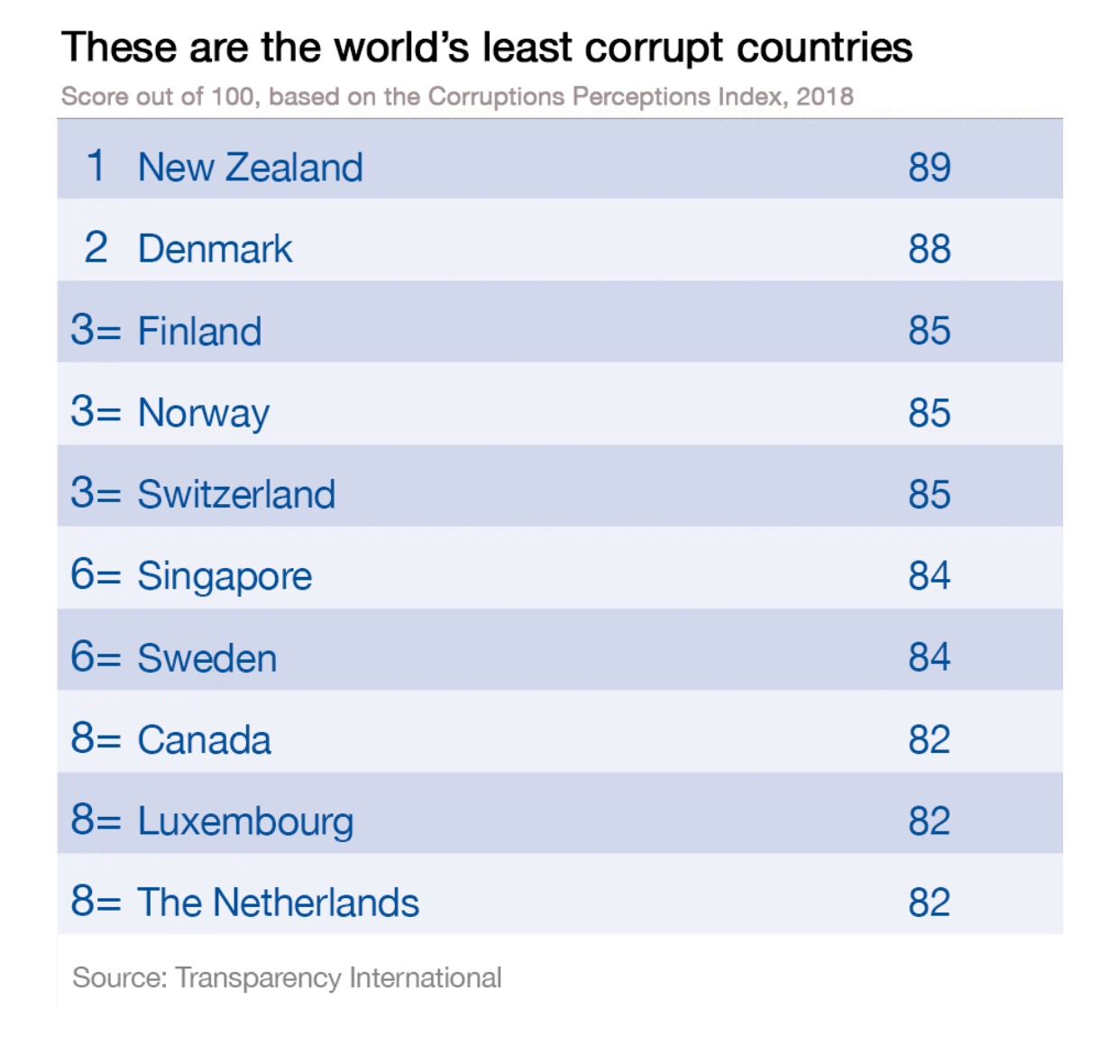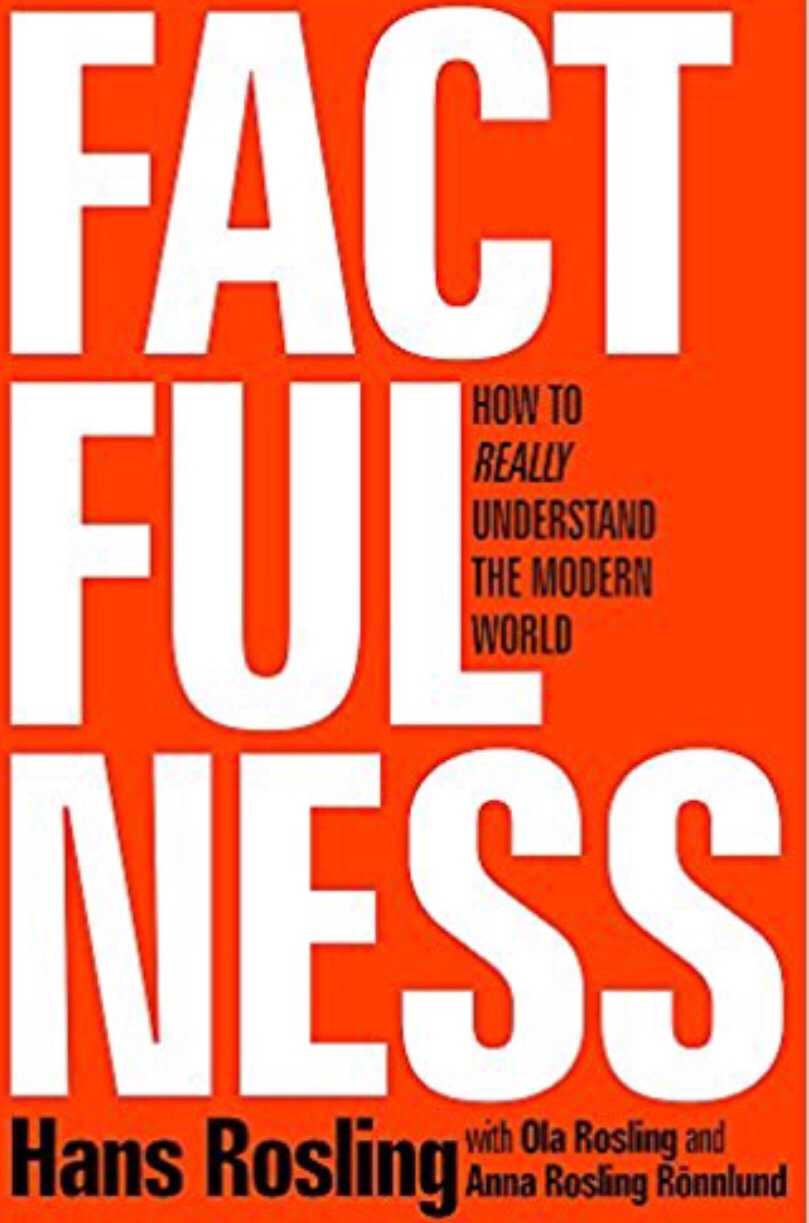Transparency International on Wednesday published its latest Corruption Perceptions Index, a global ranking of fairness around the world.
The ranking of 180 countries is based on the level of public sector corruption in 2017, according to businesspeople, journalists, and civic organisations.

Higher-ranked countries tend to have more press freedom, access to information about public spending, and independent judicial systems.
Countries are given a score out of 100, with those scoring highly being the least corrupt.
Factfulness, Ten Reasons We’re Wrong About the World–and Why Things Are Better Than You Think. This is the book you can’t miss to read.

Melinda Gates has said: ‘The increadible Hans Rosling tells the story of the secret silent miracle of human progress as only he can. But Factfulness does much more than that. It also explains why progress is so often secret and silent and teaches readers how to see it clearly.’
When asked simple questions about global trends – why the world’s population is increasing; how many young women go to school; how many of us live in poverty – we systematically get the answers wrong. So wrong that a chimpanzee choosing answers at random will consistently outguess journalists, Nobel laureates, and investment bankers.
In Factfulness, Professors of International Health and a man who can make data sing, Hans Rosling, together with his two long-time collaborators Anna and Ola, offers a radical new explanation of why this happens, and reveals the ten instincts that distort our perspective.
It turns out that the world, for all its imperfections, is in a much better state than we might think. But when we worry about everything all the time instead of embracing a worldview based on facts, we can lose our ability to focus on the things that threaten us most.
Inspiring and revelatory, filled with lively anecdotes and moving stories, Factfulness is an urgent and essential book that will change the way you see the world.
He arrived to The United States less than 24 hours ago. He has practiced once with the team.
He started on the bench tonight. LA Galaxy was 0-3 down. Then LA scored a goal. And it was Zlatan-time…

After 72 minutes Zlatan Ibrahimovic makes his entrance to MLS. He creates the set-up for 2-3. 7 minutes after his entrance he scores 3-3 on a stunming volley dreamgoal from 40 meters.

See the amazing goal here: Zlatan’s dreamgoal
In the 92nd minutes he scores again a second goal with a beautiful header to win the game 4-3.

Welcome to Zlatan, MLS!
He said it himself – ‘The fans wanted Zlatan, I gave them Zlatan’.






You must be logged in to post a comment.